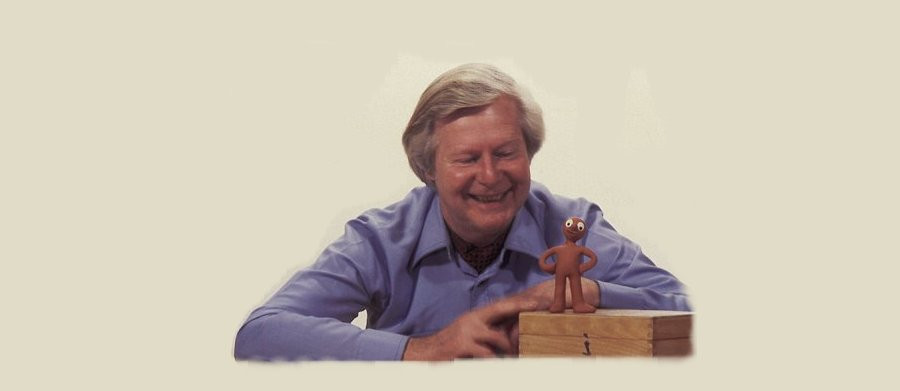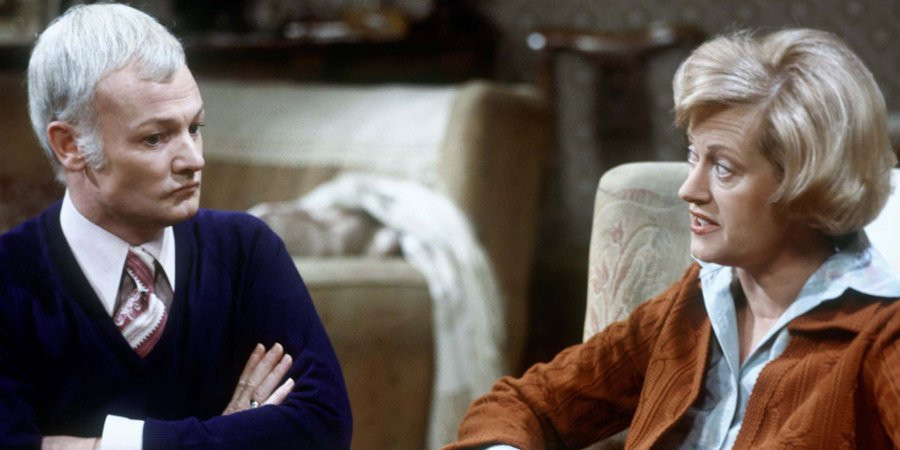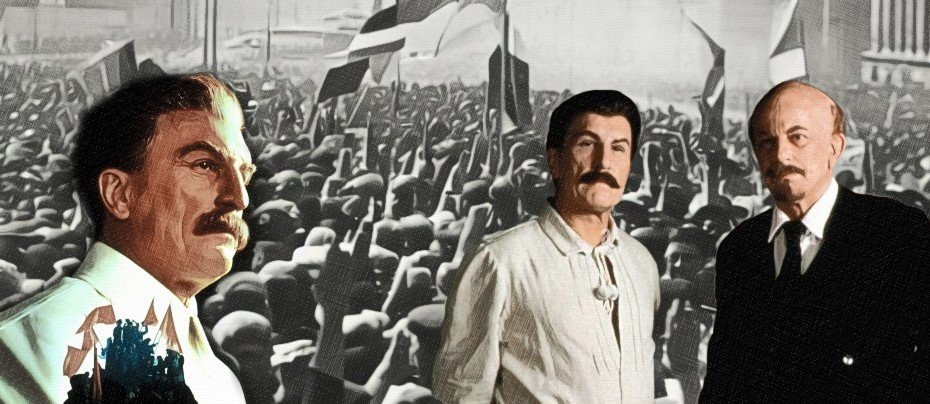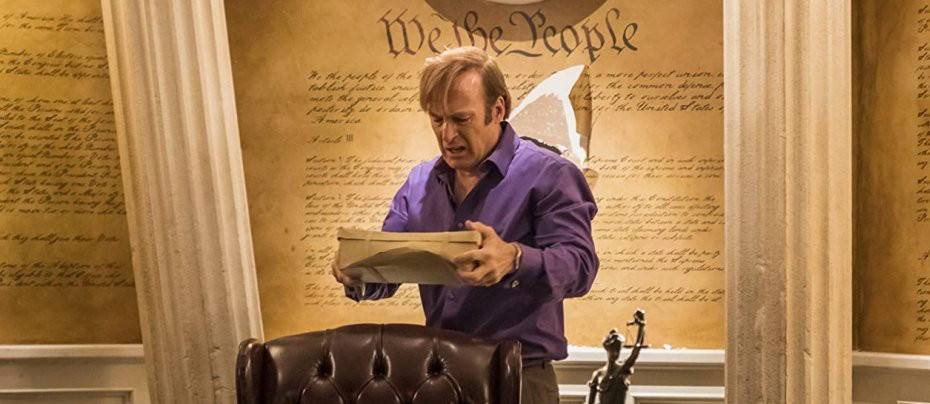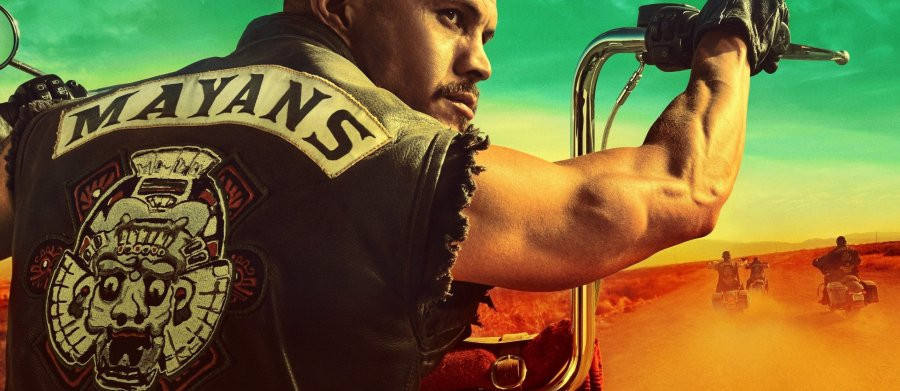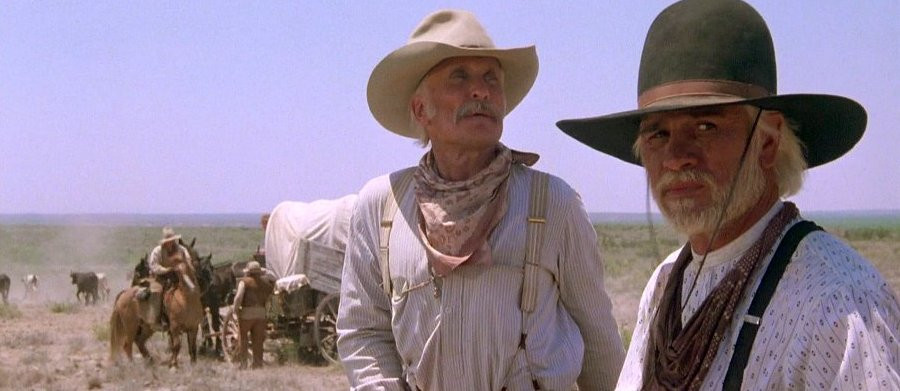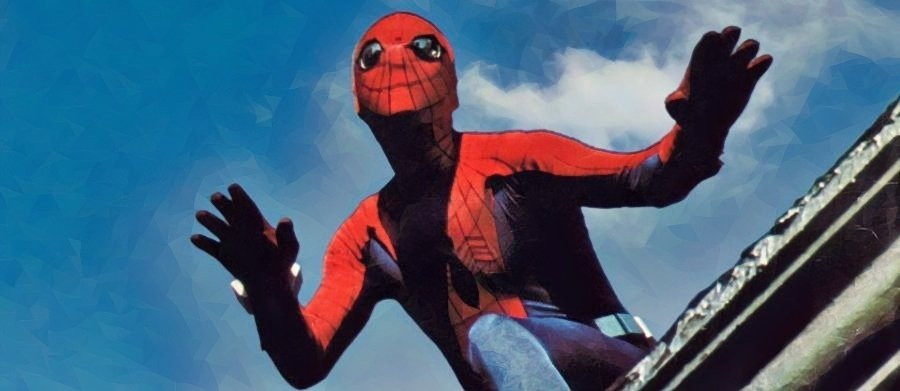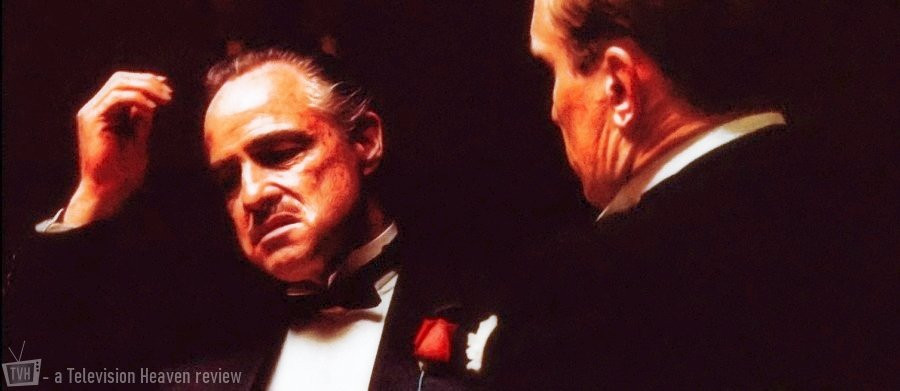
The Godfather Saga
1977 - United StatesThe influential cultural commentator Peter Griffin once remarked in Family Guy that he never cared for The Godfather because it "insists upon itself." Although that line was supposed to satirise the pretentiousness of critics, it has, like all the best satire, an element of truth beneath. It is possible to make a strong case against the original film: it is very slow; nothing much happens for long periods; it is necessary to absorb a lot of information to understand what is going on; Brando's mannerist acting clashes with the more realistic style of other cast members; it romanticises organised crime quite horribly; and the bestselling novel by Mario Puzo on which it is based is, frankly, padded with boring digression.
No wonder many people are disappointed when they first see it after hearing all the fuss about how great it is. Sorry to go all autobiographical, but your reviewer was among them. Yet I am now a huge fan of both films. It was seeing the television "miniseries" version that made all the difference: it had such an impact that it prompted me to go back and take another look at the cinematic versions, which I now love in their own right as the masterpieces that they are.
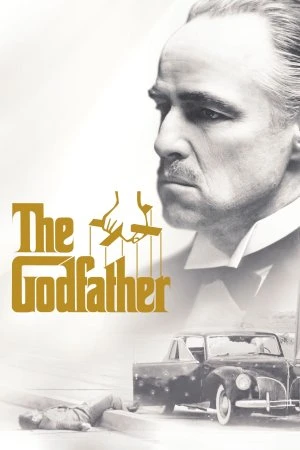
I realise that, by this point, I may well have destroyed any credibility I might have as a reviewer. Not only have I dared to criticise an acknowledged classic, I have gone on to describe it as a television "miniseries" when everyone knows The Godfather is a feature film and The Godfather Part II is its sequel. Indeed, why are we even discussing them on a website dedicated to television? Is it now open season to discuss feature films here now simply on the pretext that they have been shown on a small screen? Fear not: stick with me and all will be explained...
Of course, both The Godfather and The Godfather Part II are indeed hugely successful feature films. As such, they were sold to and shown on television in the usual way after their theatrical runs. There the story would normally end - but for two things.
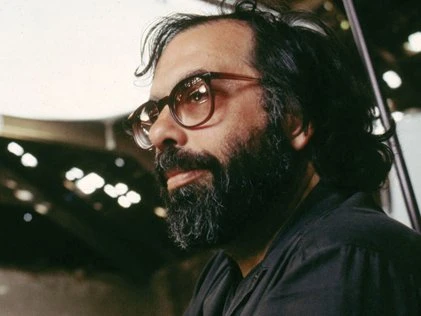
First, in 1977 Francis Ford Coppola found himself, as so often in his career, very short of cash. He was making Apocalypse Now with his Godfather stars Marlon Brando and Robert Duvall, and although that film is now also generally acknowledged as a great, at the time it was only a famously chaotic shoot which went disastrously over budget.
Second, this happened to coincide with what has rightly been called "The Golden Age of the Miniseries" on American television from the late 1970s to the early 1980s. Networks invested huge sums in prestige drama projects designed as "television events." They were intended to dominate the schedules over several nights, and the best of them, like Jesus of Nazareth and Roots (also 1977), succeeded beyond the dreams of all but the most optimistic executives.
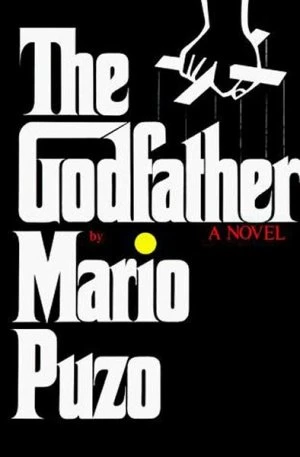
In many ways, the original Puzo novel is more suitable to the structure of the "miniseries" than to that of the feature film. Indeed, a subsequent Puzo Mafia novel, 'The Last Don,' was turned into a highly creditable 1997 "miniseries" starring Danny Aiello and Joe Mantegna. Of course, that benefited from the Mafia mythology having already been established in the public consciousness by The Godfather, but it is not difficult to imagine an alternative history in which The Godfather had never been made as a feature film.
There was certainly nothing inevitable about it. The rights had been acquired very cheaply by the legendary producer and studio executive Robert Evans before the novel had turned out to be a bestseller, but after that promising start, everything became difficult. The project spent several years in development, as different names were considered or attached at different times, and, when the camera finally rolled, it proved to be another tough shoot for Coppola, who was far from the first choice as director.
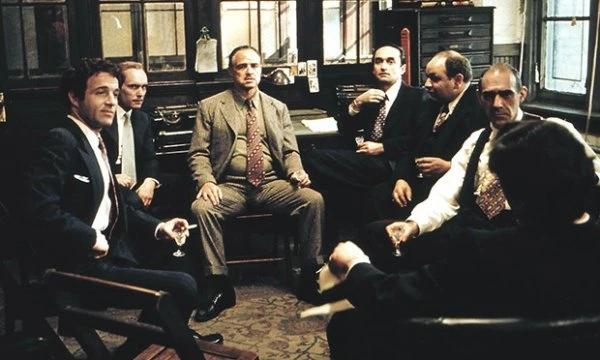
Had Evans and Coppola not pushed on against the odds, or had Puzo published only a few years later, The Godfather would almost certainly have been made towards the end of the decade as a "miniseries" rather than a feature film. If made and marketed as an Italian-American version of Roots, it would probably have had considerable commercial and critical success, but would not enjoy the enduring prestige and status that comes from its cinematic release. As things were, the "miniseries" format was not really an option earlier in the Seventies when Evans was under pressure to use the rights he had bought, so we got the feature films instead.
Yet as the "miniseries" format developed, it was not difficult for those who understood it to look back and see the how Puzo's original novel could almost have been written for it. Given how many classic films have since been remade as inferior "miniseries" we should perhaps be grateful that no one attempted a completely new production with a cheaper cast and lower production values. That is what would doubtless be done today.
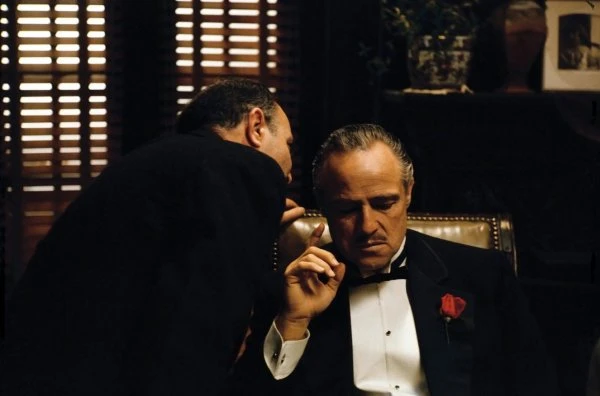
The Seventies had greater respect for art. What actually happened was that Coppola himself oversaw a recutting of the two films by his own editor, Barry Malkin, who had worked on The Godfather Part II. As such, The Godfather Saga would be considered a new "director's cut" today. It is listed as separate work from The Godfather and The Godfather Part II on authoritative websites such as IMDb. More importantly, it is designed specifically as a work for a different medium.
The "miniseries" combines both The Godfather and The Godfather Part II, but it does more than simply show the two feature films on successive nights. Both were cut into a single long film, with the scenes in a more chronological order, and over an hour of extra footage was added. Nearly all of this additional footage consists of deleted scenes which were filmed as part of the process of making the two feature films but which had been excluded from their final theatrical cuts, usually for reasons of time and pace.
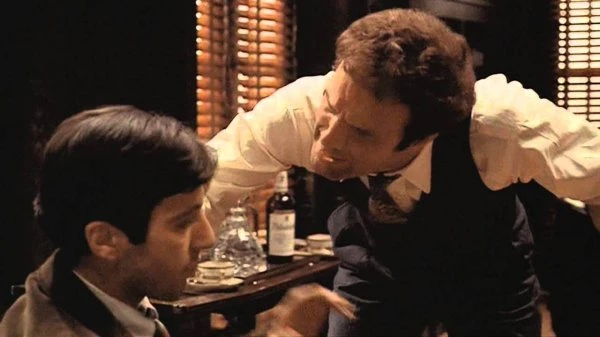
The running time is just over seven hours, even if it should be noted that slightly shorter versions have been shown at various times, some toning down the violence considerably. It has gone by several names, including 'The Godfather: the Complete Novel for Television' and 'The Godfather: A Novel for Television,' but is most commonly known as The Godfather Saga. Rather misleadingly, a version titled 'The Godfather 1902-1959: the Complete Epic' runs about fifty minutes short and is therefore far from complete.
Since this is indeed still a television review website, not a movie site, this is not the place to comment on The Godfather and its sequel as films. The purpose here is to discuss how the television version differed from the films and why it succeeded as television.

Although the ratings were disappointing, probably because both films had already been shown on television, The Godfather Saga fits its medium perfectly. Being honest, one can see why most of the deleted scenes restored to the "miniseries" had been deleted from the theatrical versions. Most add little or nothing to the plot of the films as a whole, and very little to character that we did not know already. Given that both films ran very long even after they were cut, one must agree with most of the difficult editorial decisions that were made at that stage. The films did not need to be longer. However, the "miniseries" format gives the material more room to breathe, and the restored deleted scenes add texture and depth. We get more of a sense of being in a different time and place, and the characters get a bit more impasto.
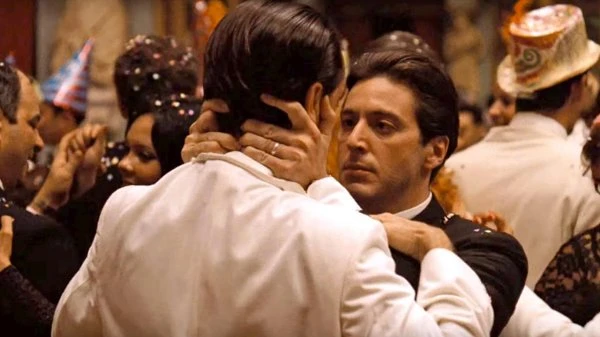
The controversial decision to switch to a chronological narrative is more significant. Many critics liked how the original Godfather had jumped in right in the middle of the wedding, and how The Godfather Part II jumped between two separate storylines set in different periods. To some of them the chronological approach seemed to lack sophistication. Yet jumping between storylines might not have worked so well in a television series at that time when the attention of the audience could not be guaranteed and there were no replay facilities, especially if the third storyline had been braided with the other two: it might have ended up a confusing mess.
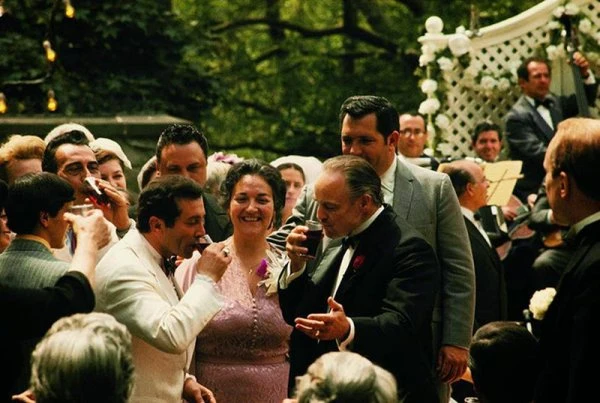
As it is, the chronological approach is simple and clear. The passing of the baton from Oreste Baldini as the young Vito Corleone to Robert De Niro to Marlon Brando to Al Pacino is very satisfying. We see their world develop from the brutal poverty of Sicily to the vibrant immigrant community in New York to Post-War affluence to the tacky glamour of Las Vegas. We begin to understand their culture and its significance. By the time we get to the wedding, it is no longer a giant exposition dump.
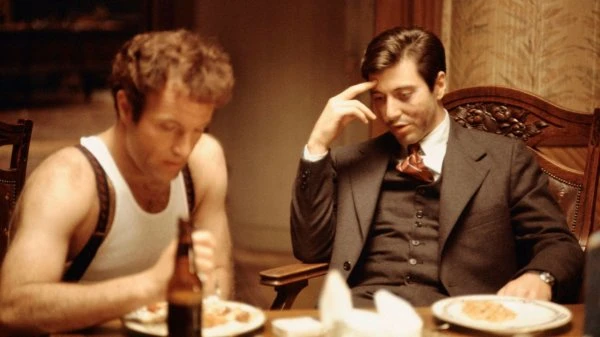
We are no longer just seeing the story of a man struggling to escape his father's legacy - now we are seeing part of the story of America. The "miniseries" therefore achieves something even the films never did: it invites comparison with Sergio Leone's flawed epic Once Upon A Time in America as the landscape of an entire culture, not just a family portrait.
Sadly, the story does not end there. Coppola subsequently made another Godfather feature, The Godfather Part III, which was in turn edited into the "miniseries." It was not entirely a bad film - in fact it had some potentially very good elements, most notably Andy Garcia and the Vatican plotline. The problem was that it was simply not up to what had gone before and some of the characters, including Michael Corleone (Pacino), seemed completely different people. It all came across as forced and out of place. As a result, your reviewer is in no position to comment on The Godfather Trilogy, as the "miniseries" incorporating the third film is called, never having had the slightest desire to see it. Some memories are too precious to taint.
Review: John Winterson Richards
John Winterson Richards is the author of the 'Xenophobe's Guide to the Welsh' and the 'Bluffer's Guide to Small Business,' both of which have been reprinted more than twenty times in English and translated into several other languages. He was editor of the latest Bluffer's Guide to Management and, as a freelance writer, has had over 500 commissioned articles published.
He is also the author of ‘How to Build Your Own Pyramid: A Practical Guide to Organisational Structures' and co-author of 'The Context of Christ: the History and Politics of Rome and Judea, 100 BC - 33 AD,' as well as the author of several novels under the name Charles Cromwell, all of which can be downloaded from Amazon. John has also written over 100 reviews for Television Heaven.
John's Website can be found here: John Winterson Richards
Seen this show? How do you rate it?
Seen this show? How do you rate it?
Published on August 16th, 2021. Written by John Winterson Richards for Television Heaven.


